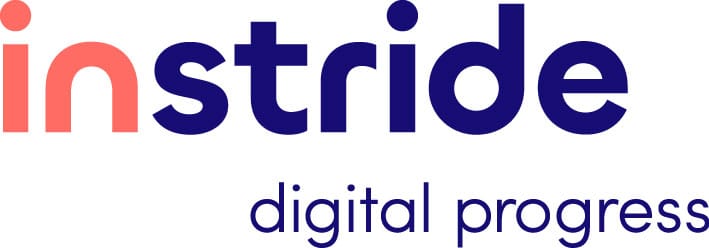Suchmaschinen-Marketing – SEO vs. SEA
Bestimmt hast du schon vom sogenannten Suchmaschinenmarketing (SEM) gehört. Darunter fallen die zwei Themen SEO (Search Engine Optimization) und SEA (Search Engine Advertising). Doch welche konkreten Vorteile bieten diese beiden Themen und wobei unterscheiden sie sich?
Unser Rebranding – Hinter den Kulissen mit unserem Projektteam
Nach langer und intensiver Vorbereitungszeit duften wir unser Rebranding am Launch-Event präsentieren. Gemeinsam mit Kunden, Partnern und natürlich allen Mitarbeitenden wurde unsere neue Marke instride am 1. Februar 2024 gefeiert. Zeit zurückzublicken – Wir haben beim Projektteam nachgefragt.
Keine Zeit für Clean Code? Was du trotzdem beachten solltest
Kennst du die Gedanken «Ach, eigentlich könnte ich den Code viel cleaner schreiben aber die Zeit reicht leider nicht? Ich müsste zu viel anpassen.» Wenn dir diese Frage bekannt vorkommt, dann bist du hier genau richtig.
Wirksame Texte für deine Website schreiben
Die Online-Welt ist laut und umkämpft. Da wetteifert jeder deiner Webtexte um die Aufmerksamkeit der Zielgruppe. Zum Glück gibt es wirkungsvolle Mittel, mit denen du das Interesse deines Publikums wecken kannst und starke Texte für deine Website schreibst.
Follower-Interaktionen auf Social Media
Wie kann man mit Follower interagieren und sie dazu bewegen etwas zu machen? In einer Welt, in der die sozialen Medien ein wichtiger Bestandteil unseres Lebens sind, wird man immer wieder von der Macht von Follower-Interaktionen überrascht.
Nachhaltiges Teambuilding
Immer wieder erhalten wir von externen, sowie auch internen Personen Rückmeldungen, dass wir ein grossartiges Team sind. In diesem Blogbeitrag stellen wir Ihnen einzelne Aspekte unseres Teambuildings vor.
Wie Workshops Grosses verändern
Workshops spielen in meinem Job als Webprojektleiterin eine sehr grosse Rolle. Wenn Sie sich fragen, was genau die Ziele eines Workshops sind. Oder wie Workshops überhaupt funktionieren, dann lesen Sie den Blogbeitrag und lernen Sie neue Dinge dazu.
Ein effektives Social-Media-Konzept
In der heutigen digitalen Ära finden immer mehr Geschäftsbeziehungen online statt. Die Präsenz in den sozialen Medien wird daher immer wichtiger. Der Schlüssel dazu ist ein effektives Social-Media-Konzept.
Bereit fürs neue Schweizer Datenschutzgesetz?
Wir werfen einen Blick auf die Auswirkungen des neuen Schweizer Datenschutzgesetz aufs Web: Ein wenig Technik und viel Organisatorisches.
Die Lichter gehen aus bei Google Analytics
Bald gehen die Lichter aus bei Google Universal Analytics und wird tappen im Dunkeln. Ganz so dramatisch ist es nicht. In diesem Beitrag zeigen wir Ihnen was der Umzug von Google Universal Analytics zu Google Analytics 4 bedeutet.
Projekt-Organisation – Agile vs. Wasserfall Methode
Was bedeutet die Wasserfall- oder die Agile Methode für Ihr Projekt? Und welche Methode ist am effizientesten, um Ihr Projekt zu realisieren? Diese Frage stellt sich vor jedem Projektbeginn, denn das ist die Grundlage der Projekt-Organisation.
E-Mail Marketing für Profis - 5 Tipps für mehr Kampagnenerfolg
Obwohl viele Menschen denken, dass die Bedeutung von E-Mail-Marketing abgenommen hat, wissen Experten, dass das Gegenteil der Fall ist. Menschen greifen heute von überall auf der Welt auf Ihre E-Mail zu und öffnen E-Mails, die interessant zu sein scheinen.












